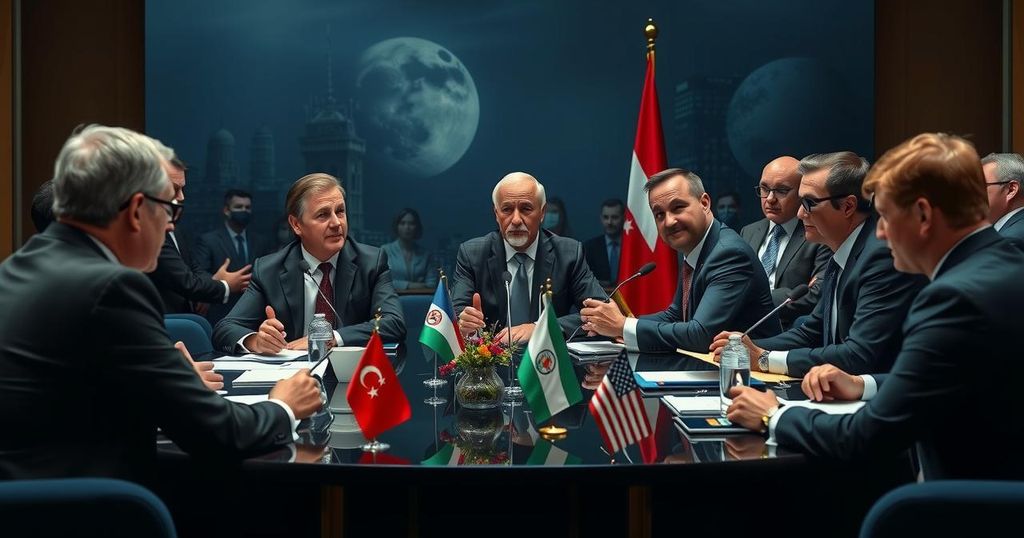G20 leaders gathered in Brazil to address climate change, Middle East and Ukraine conflicts, and Donald Trump’s return to power. Despite hopes for a decisive agreement, discussions focused on secure climate financing and reducing poverty, primarily led by Brazilian President Lula. With heightened security concerns and varying national agendas, the summit’s success hinges on collaborative resolutions.
Leaders of the G20 convened in Brazil for a critical summit aimed at navigating complex issues surrounding climate change, the ongoing conflicts in the Middle East and Ukraine, and the implications of Donald Trump’s ascendance back to power. Brazilian President Luiz Inácio Lula da Silva initiated discussions, emphasizing the urgency of addressing hunger and environmental concerns. Amid scarce optimism for a conclusive geopolitical declaration, the meeting takes place shortly after pivotal shifts in U.S. foreign policy regarding Ukraine, further complicating the dynamics within the group. Security measures were heightened in light of recent extremist threats, setting a serious tone for the proceedings. Key conversations include the necessity of accelerating meaningful climate finance for developing nations and reinforcing commitments to renewable energy amidst mounting climate crises, further exacerbated by events in Brazil and other regions. The Brazilian government’s ambition to levy higher taxes on wealth was also brought to the forefront, with Lula advocating for direct action against poverty on a global scale.
The G20 summit, comprising the world’s largest economies, serves as a critical platform for addressing pressing global issues ranging from geopolitical conflicts to climate change agreements. As Brazil plays host, the summit is marked by the backdrop of intensified warfare in Ukraine and the Middle East, challenging the unity of member nations. Additionally, the recent electoral victory of Donald Trump in the United States, whose policies may revert to a more nationalistic approach, adds another layer of complexity to the existing discourse. The international community is particularly concerned with ongoing climate negotiations stalling, particularly regarding equitable financing mechanisms for countries most affected by climate change. In this context, the spirit of collaboration and commitment to shared responsibility is being tested.
In summary, the G20 summit in Brazil stands as a pivotal juncture for world leaders to reconcile divisive geopolitical issues while striving for collective action on climate change and poverty reduction. With significant pressure to generate impactful resolutions, the discourse overshadowed by conflicts in Ukraine and the Middle East underscores the critical need for cooperation. Lula’s proposals underscore an urgent call for addressing inequalities and ideological differences as nations look towards a more sustainable future. How these discussions will evolve in light of recent U.S. policy shifts and the varying stances of G20 members remains to be seen.
Original Source: www.france24.com






